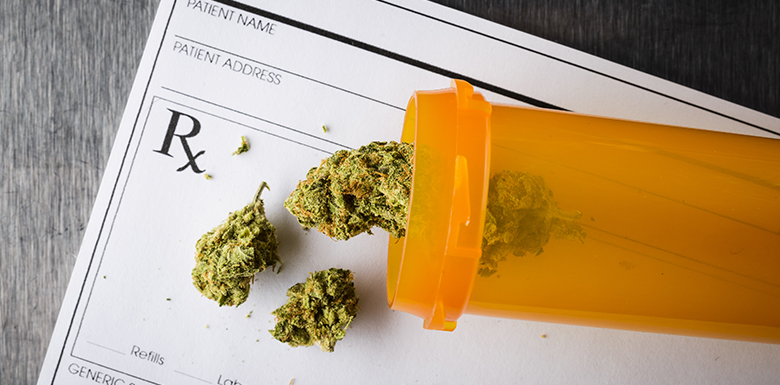The California cannabis industry is at a crossroads. The state’s new medical marijuana regulations are finally in place, and medicinal and adult use dispensaries are now operational in many cities. On the other hand, California’s black market for marijuana is booming, with unregulated businesses outnumbering licensed sellers almost 3 to 1, according to a survey by The United Cannabis Business Association. California now holds the dubious honor of being the only state to see a yearly reduction in legal sales since the repeal of prohibition.
Something is clearly dysfunctional with California’s marijuana industry, and its stakeholders cannot pinpoint the blame. Legal businesses blame unregulated businesses and advertising services such as Weedmaps, unregulated businesses blame an overbearing and expensive regulatory scheme, and the government asks for more time for its new policies to take effect. Meanwhile, innocent people are still being jailed for breaking the state’s confusing marijuana laws. If you’ve been charged with a cannabis crime, call McElfresh Law today at (858) 756-7107 or use our online contact form.
Unlicensed Marijuana Business in California Brace for Crackdown
The California Bureau for Cannabis Control and state law enforcement agencies are increasing enforcement of the state’s cannabis laws. According to the LA Times, the California authorities have tripled the number of raids against unregulated cannabis businesses, seizing over $30 million in product since 2018. In July of 2019, California Governor Gavin Newsom authorized new fines against unlicensed marijuana growers, distributors, and sellers that can reach $30,000 per day.
One problem the authorities face in ramping up enforcement is navigating the state’s complex laws and regulations–ironically, this same challenge pushes many businesses and consumers into the black market. California cops need to be fluent in the state’s cannabis law to effectively investigate illegal operations, and to arrest the right people. By making false arrests, confiscating legal cannabis, and disrupting lawful businesses and cooperatives, the authorities will only make the situation worse.
The California DOJ Has Released New Enforcement Guidelines for Marijuana Laws
In August 2019, the California Department of Justice released “Guidelines for the Security and Non-Diversion of Cannabis Grown for Medicinal Use.” This handbook summarizes most of the relevant cannabis regulations of the state, and gives the police guidelines on when to make arrests and confiscate evidence. The primary thrust of these guidelines is that law enforcement should never make an arrest “under federal law when the officer determines, from the facts available, that the cultivation, transportation, delivery, and/or possession, is permitted under California’s medicinal or adult use cannabis laws.”
This means that state law enforcement officials can no longer decide to arrest you based on a violation of federal law, simply because they don’t agree with the state law’s legalization of cannabis. While rare in urban areas, many rural law enforcement agencies were continuing to wage the federal war on drugs despite the end of prohibition under state law. Now the police must always make their decisions to arrest based on state law:
- If the officer reasonably believes, based on the totality of the circumstances, that you are possessing cannabis in compliance with the state’s guidelines, they should release you and refrain from seizing your cannabis
- However, if the officer has reason to doubt whether you are selling or growing cannabis for lawful or medicinal use, based on factors such as the quantity of cannabis, packaging, the presence of weapons, illicit drugs, or large amounts of cash, they should make an arrest
- Officers do not have to accept your claim of having a medical or business license unless you have supporting documentation
- After your arrest, you can use your medicinal card or business license as a defense in court, and you may petition to have your cannabis returned
The goal of these new guidelines is for law enforcement across the state to apply consistent standards in making arrests. But sometimes, consistency may not be possible owing to the vagueness of the law. For example, California law does not define cannabis collectives, so the Department of Justice guidelines resort to the definition of the Random House Unabridged Dictionary: “a business, farm, etc., jointly owned and operated by the members of a group.”
The guidelines extrapolate from this dictionary definition that a “licensed cannabis collective should not purchase cannabis from, or sell to, nonmembers; instead, it should only provide a means for facilitating or coordinating transactions between members.” It is unclear what facts or circumstances indicate what “facilitating or coordinating transactions” means, and how this is different from actually transacting. As a result, the authorities will probably continue to over prosecute cannabis collectives.
The California Bureau of Cannabis Control Lacks Enforcement Resources
Another issue with ramping up enforcement is the Bureau for Cannabis Control–the state’s authority on marijuana regulations–does not have direct law enforcement powers. It is a regulatory agency with the authority to levy fines. It can, however, direct and assist law enforcement operations. The problem is, the agency is severely understaffed, with only half of its positions filled.
A recent audit by the state Department of Finance concluded that the bureau cannot “provide effective and comprehensive oversight of cannabis activities throughout California.” The report ads that the bureau’s “ability to process complaints, perform inspections and investigations, and review and inspect testing laboratories is severely impacted.”
A San Diego Cannabis Lawyer Can Help
Moving forward, we can continue to see more and more enforcement actions against non-compliant cannabis businesses. Even with the new enforcement guidelines, the police are likely to round up law abiding citizens in the process. If you or a loved one has been charged with a cannabis crime, we at McElfresh Law can help. Call us today at (858) 756-7107 or use our online contact form.
